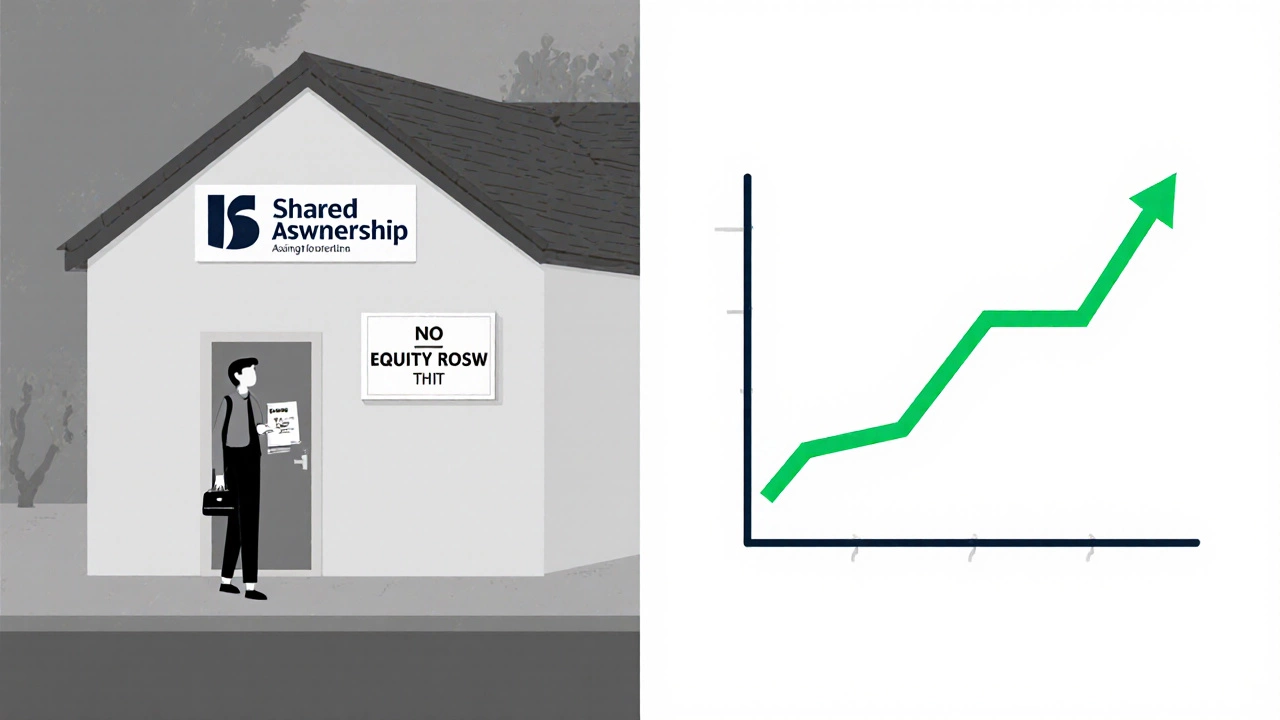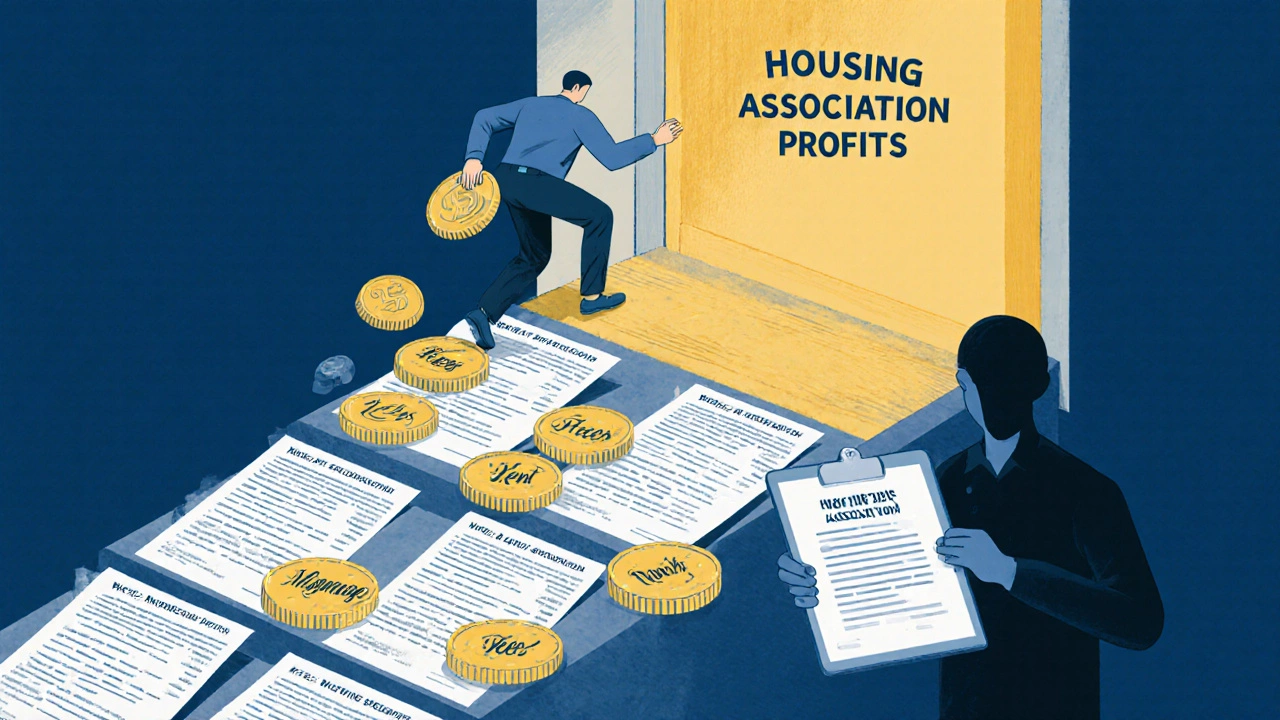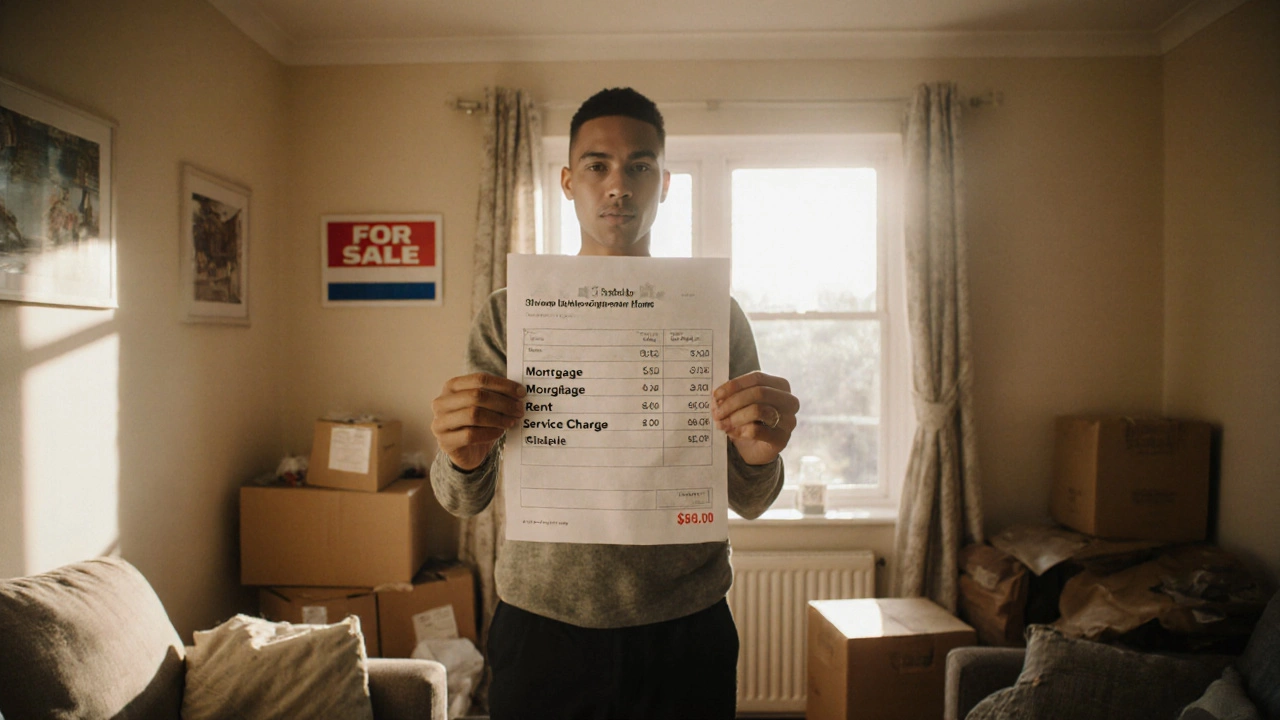Shared Ownership Cost Calculator
Calculate your monthly costs for shared ownership homes. This tool shows exactly what you'll pay each month based on your share percentage, mortgage rate, and property value. Remember: shared ownership doesn't pay you monthly - you pay costs.
Your Monthly Costs
Important Notice: This is a cost calculation - not income. You don't receive payments with shared ownership. You pay mortgage, rent, and service charges each month.
When you buy a home through a shared ownership scheme, you might hear people say you’re a ‘shareholder’-but that doesn’t mean you get paid like a stock investor. Many people assume shared ownership means earning money from your share of the property, like dividends from company shares. That’s not how it works. You don’t get monthly payments. In fact, you pay out every month-not the other way around.
What Shared Ownership Actually Means
Shared ownership is a government-backed housing scheme in New Zealand and the UK that lets you buy a portion of a home-usually between 25% and 75%-while paying rent on the rest. The remaining share is owned by a housing association or local council. You’re not a shareholder in the traditional sense. You don’t own shares in a company. You own a percentage of a property. The term ‘shareholder’ here is just legal jargon for ‘partial owner’.
Think of it like renting half your house and owning the other half. You pay a mortgage on your share. You pay rent on the part you don’t own. And you’re responsible for repairs, insurance, and service charges. There’s no cash coming back to you from your share.
Why People Get Confused
The confusion comes from the word ‘share.’ In finance, shares mean ownership in a company that pays dividends. In shared ownership, ‘share’ means ownership of a slice of a house. No dividends. No payouts. No monthly income. If you’re hoping to make money just by owning part of your home, you’re looking at the wrong model.
Some people mix up shared ownership with buy-to-let investments or co-investment schemes where multiple people fund a property and split rental income. Those exist, but they’re not the same as shared ownership through housing associations. Those are private arrangements, often risky and unregulated. Shared ownership schemes are designed to help first-time buyers get on the property ladder-not to generate passive income.
What You Actually Pay Each Month
Here’s what your monthly bill looks like in a typical shared ownership setup:
- Mortgage payment: Based on the portion you own. If you bought 50% of a $600,000 home, you’d take out a $300,000 mortgage. At 7% interest, that’s about $2,000 a month.
- Rent: On the part you don’t own. Usually 2.75% to 3% of the housing association’s share per year. For their 50% share ($300,000), that’s roughly $688 a month.
- Service charge: Covers building maintenance, cleaning, gardening, and management. Around $150-$300 a month depending on the property.
- Building insurance: Often included in the service charge, but sometimes billed separately.
That’s $2,800-$3,100 a month just to live in your own home. No cash back. No dividends. Just expenses.

Can You Ever Get Money Back?
You can get money back-but only when you sell. If the property value goes up, you get a share of the profit based on your ownership percentage. If you bought 40% of a home for $200,000 and sold it five years later for $300,000, you’d get 40% of the $100,000 gain: $40,000. That’s your return. But it’s not monthly. It’s a lump sum, and only if you sell.
There’s also a process called ‘staircasing’ where you can buy more shares over time. You might start with 30%, then buy another 20% after a year. Each time, you pay a valuation fee and update your mortgage. But again-no payments. You’re spending more money to own more of your home.
Who Gets Paid in Shared Ownership?
The housing association that owns the other share doesn’t pay you. They collect rent. They also make money from:
- Rent on your unused share
- Service charges
- Staircasing fees (they charge for valuations and legal work when you buy more shares)
- Resale commissions (sometimes 1-3% when you sell)
They’re not charities. They’re nonprofits or public bodies that use the income to fund more affordable homes. Your rent helps them build more properties for people like you.
Is Shared Ownership Worth It?
It’s not a way to make money quickly. But it can be a way to get into homeownership when you can’t afford a full mortgage. If you’re a first-time buyer with a stable job and can handle monthly costs of $3,000+, it’s a real path to owning a home.
Compare it to renting. If you rented a similar home for $2,800 a month, you’d get zero equity. In shared ownership, you’re building equity every month-even if you’re paying rent too. Over five years, you could own 60% of a home instead of 30%. That’s progress.
But if you need cash flow-if you’re counting on monthly income to cover bills-shared ownership isn’t for you. You’re better off renting and investing elsewhere.

Common Myths About Shared Ownership
- Myth: You get paid monthly like a shareholder. Truth: You pay monthly. No exceptions.
- Myth: You can sell anytime and cash out. Truth: You can, but the housing association has the right to find a buyer first. You can’t just list it on TradeMe.
- Myth: Rent goes down as you buy more shares. Truth: Rent reduces as you staircase, but not always linearly. You’ll need a new valuation each time.
- Myth: It’s cheaper than renting. Truth: Sometimes yes, sometimes no. Compare your total monthly cost (mortgage + rent + service charge) to market rent. Don’t assume it’s cheaper.
What Happens If You Can’t Pay?
If you fall behind on mortgage payments, your lender can repossess your share. If you fall behind on rent, the housing association can take legal action-even though you own part of the home. You don’t get protection just because you’re a partial owner.
There’s no safety net. No government bailouts. No monthly relief. You’re responsible for every cent.
Final Answer: Do Shareholders Get Paid Monthly?
No. Not even close.
Shared ownership is about buying into a home, not earning from it. You pay rent. You pay a mortgage. You pay service charges. You build equity slowly. You get paid only when you sell-and even then, you’re not guaranteed a profit.
If you’re looking for monthly income from property, look at rental investments. If you’re looking to own a home you can’t afford outright, shared ownership is a real tool. Just don’t expect a paycheck.
Do shared ownership shareholders get dividends?
No. Shared ownership doesn’t involve dividends or any form of monthly payout. The term ‘shareholder’ refers to partial ownership of a property, not shares in a company. You pay rent and mortgage-you don’t receive income from your share.
Can I earn money from shared ownership without selling?
No. You can’t earn money from shared ownership unless you sell your share. Even if you rent out your home (which many schemes restrict), you still have to pay rent to the housing association and can’t keep all the rental income. The structure is designed for owner-occupiers, not investors.
What’s the difference between shared ownership and co-investing?
Shared ownership is regulated and involves buying part of a home from a housing association while paying rent on the rest. Co-investing is private-multiple people buy a property together and split rental income. Co-investing isn’t government-backed, often requires a larger deposit, and carries higher legal and financial risks.
Can I increase my share over time?
Yes. This is called ‘staircasing.’ You can buy additional shares in your home, usually in 10%-25% increments, as your finances improve. Each time, you’ll need a new property valuation and may pay legal fees. Eventually, you can own 100% of the property and stop paying rent.
Are there any hidden costs in shared ownership?
Yes. In addition to mortgage, rent, and service charges, you’ll pay for valuations when staircasing, legal fees, insurance, and sometimes administration fees. Some housing associations charge a resale fee of 1-3% when you sell. Always ask for a full cost breakdown before signing.
